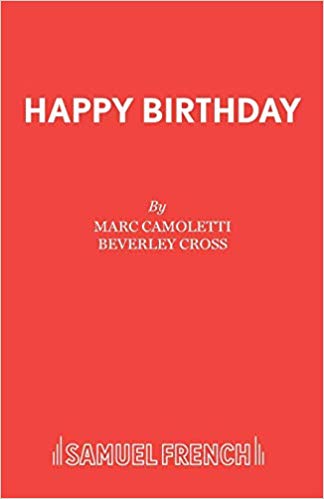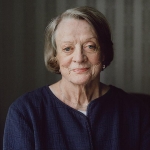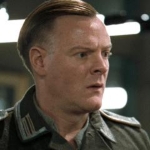Background
Beverley Cross on April 13, 1931, in London, City of London, United Kingdom to the family of theatre workers. His mother, Eileen Dale, was a dancer and actress, and his father, George Cross, was a theatrical manager.

Beverley Cross graduated from a boarding school Pangbourne College.
Later Beverley Cross studied at Balliol College of Oxford.

(A young student comes to Paris in search of adventure and...)
A young student comes to Paris in search of adventure and finds it. In the midst of laughing merrymakers he meets a mysterious stranger who invites him to join in a daring rescue plan - a plan that explodes in violence and terror and death by night.
http://www.amazon.com/gp/product/B000HU9G8U/?tag=2022091-20
1958

(The English language adaptation, translated by Beverley C...)
The English language adaptation, translated by Beverley Cross, was first staged in London at the Apollo Theatre in 1962 and transferred to the Duchess Theatre in 1965, running for a total of seven years. In 1991, the play was listed in the Guinness Book of Records as the most performed French play throughout the world.
https://www.amazon.com/gp/product/B019NRCD6Y/?tag=2022091-20
1960

(Half a Sixpence is a musical comedy based on the 1905 nov...)
Half a Sixpence is a musical comedy based on the 1905 novel Kipps by H. G. Wells, with music and lyrics by David Heneker and book by Beverley Cross. It was written as a vehicle for British pop star Tommy Steele.
http://www.amazon.com/gp/product/1843283921/?tag=2022091-20
1963

(The Rising of the Moon is an operatic comedy in three act...)
The Rising of the Moon is an operatic comedy in three acts composed by Nicholas Maw to a libretto by Beverley Cross. It premiered on 19 July 1970 at the Glyndebourne Festival conducted by Raymond Leppard and directed by Colin Graham. The title comes from the Irish patriotic song of the same name.
http://www.amazon.com/gp/product/B0006DFG5U/?tag=2022091-20
1970

(Bernard has foolishly asked his mistress, Brigit, to his ...)
Bernard has foolishly asked his mistress, Brigit, to his home on her birthday despite the fact his wife Jacqueline is present. He has also invited his oldest friend, Robert and asks him to pretend Brigit is his mistress. Robert refuses as he is having an affair with Jacqueline, but Bernard cunningly involves him anyway. By chance, a temporary maid engaged for the evening arrives when Jacqueline and Bernard are out and her name is also Brigit. Robert mistakes her for Bernard's girl friend. Frantic complications in which identities, plots and counter plots and bedrooms are exchanged with ever increasing confusion transpire until an unexpected ending makes everyone happy including the maid who has acquired a mink coat and lots of money. A long running success in London.
https://www.amazon.com/gp/product/0573111723/?tag=2022091-20
1980

(First performed in 1903, The Scarlet Pimpernel was the mo...)
First performed in 1903, The Scarlet Pimpernel was the most successful play of its day archetypal Edwardian theatre and the precursor of romantic Hollywood historical epics. This adaptation brings to modern audiences the tale of the elusive hero who snatches helpless innocents from death and rescues the Comte de Tournai with the enemy hot on his trail. The Scarlet Pimpernel works in the shadows, his identity unknown even to his immediate followers. So disinterested is he in claiming credit for his heroism that he affects the persona of the biggest fool in London. He stands for English stability and against chaos and passionate fanaticism.
https://www.amazon.com/gp/product/057301650X/?tag=2022091-20
1988
librettist screenwriter writer palywright
Beverley Cross on April 13, 1931, in London, City of London, United Kingdom to the family of theatre workers. His mother, Eileen Dale, was a dancer and actress, and his father, George Cross, was a theatrical manager.
Beverley Cross graduated from a boarding school Pangbourne College. Later he studied at Balliol College of Oxford.
After attending Pangbourne Nautical College, Cross enlisted in the Royal Naval Reserve, then worked in the Norwegian Merchant Navy before studying history at Balliol College, Oxford.
In 1953 Cross joined the Royal Shakespeare Company in England, but eventually decided against a career in acting. In 1956 he began work with the British Broadcasting Corporation as a production assistant for children’s television drama. The play made its debut in 1959, starring Michael Caine. In 1962, he translated Marc Camoletti's classic farce Boeing Boeing, which went on to have a lengthy and highly lucrative run in the West End.
In 1964, Cross directed the play in Sydney. Another of his successes was Half a Sixpence, a musical comedy based on the H.G. Wells novel Kipps. This opened in 1963 and, like his first play, ran in London for more than a year.
Cross also wrote opera librettos for Richard Rodney Bennett (The Mines of Sulphur, All the King's Men and Victory) and Nicholas Maw (The Rising of the Moon). Cross later became well known for his screenplays, notably Jason and the Argonauts, The Long Ships, Genghis Khan, and Clash of the Titans. He also adapted Half a Sixpence for the screen.
He also worked uncredited on the script for Lawrence of Arabia, although it is doubtful whether any of his material made it to the final edit. He died in London in 1998, after treatment for a series of aneurysms, three weeks and three days before his 67th birthday.
(The English language adaptation, translated by Beverley C...)
1960(First performed in 1903, The Scarlet Pimpernel was the mo...)
1988(Bernard has foolishly asked his mistress, Brigit, to his ...)
1980(The Rising of the Moon is an operatic comedy in three act...)
1970(Half a Sixpence is a musical comedy based on the 1905 nov...)
1963(A young student comes to Paris in search of adventure and...)
1958(A play in three acts.)
1958Cross openly admitted being a jealous person.
Beverley Cross will be remembered for his long pursuit of actress Maggie Smith, who became his third wife in 1975. The two met in 1952 at a student revue at Oxford, where Cross was an undergraduate. Cross married a contemporary from Oxford, Elizabeth Clunies-Ross, but he never forgot Ms. Smith, who was cast in his second play, ''Strip the Willow,'' in 1960. Hopelessly in love, Cross made his feelings clear in the first stage direction he wrote for Ms. Smith's character: ''She is about 25 and very beautiful. As elegant and sophisticated as a top international model. A great sense of fun. A marvelous girl.'' The two had an affair while Cross waited for his divorce to come through, but fate intervened again. Urged on by Cross, Smith joined Laurence Olivier's new National Theater at the Old Vic, only to fall in love with a fellow actor, Robert Stephens, whom she married. Cross was filled, he said later, with murderous hatred for Stephens, and later married a model, Gayden Collins.
But in 1975, Smith's tempestuous marriage to Stephens ended. After their divorce, Cross obtained his own divorce and married Smith in a civil ceremony at the Greenwich registry office. In his entry in Who's Who, he ignored his first two marriages and recorded only his third.
Beverley Cross has two daughters from the first marriage, a son from the second one and two stepsons from the third.



